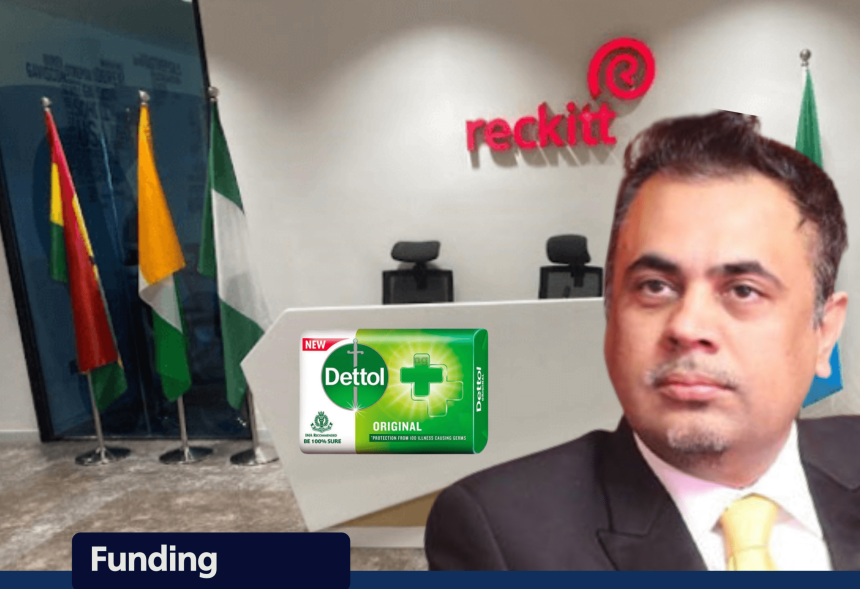In a country where open defecation is widespread and access to basic healthcare services often lies out of reach for millions, four Nigerian startups are charting a new path. Reckitt Nigeria, the health and hygiene giant behind brands like Dettol and Harpic, has awarded N48 million in seed funding to local social enterprises determined to transform how Nigerians experience hygiene, maternal health, and clean water.
Announced at the close of the 2024 Reckitt Access Accelerator Programme in Lagos, the funding will see each venture—Geotek, HealthTracka, MN Environmental Services, and Preggify receive N12 million to scale up innovative solutions designed for Nigeria’s unique challenges.
Akbar Ali Shah, Reckitt’s General Manager for Sub-Saharan Africa, said the initiative reflects the company’s belief that genuine impact lies beyond just selling products.
“At Reckitt, we take pride in offering products that are simple, safe, and effective; products that improve lives in meaningful, measurable ways,” Shah told journalists. “But the true impact goes beyond product delivery. Solving the world’s toughest hygiene challenges, especially in underserved communities, requires scalable, locally driven innovation.”
Among this year’s winners is MN Environmental Services, whose mobile toilet facilities are helping reduce open defecation in bustling Nigerian markets, where public sanitation is often non-existent. Co-founder Jife Williams said Reckitt’s funding could prove transformative.
“Every day, we see the rising rates of open defecation, especially at markets where toilet facilities are nearly inaccessible,” Williams said. “Getting support from Reckitt means we can now reach more people, respond faster, and build better systems. Everyone deserves access to clean and safe sanitation.”
The other beneficiaries bring equally bold solutions. HealthTracka offers at-home diagnostic tests, aiming to tackle delays and costs associated with hospital visits. Preggify focuses on maternal health services, providing tools and information to reduce maternal mortality. Geotek works to expand communities’ access to clean water, a critical gap in Nigeria’s public health landscape.
The accelerator programme, delivered in partnership with Yunus Social Innovation (YSI), provided not just cash but targeted bootcamps and mentorship to help these startups navigate operational and funding obstacles.
The stakes are high. Nigeria remains one of the world’s largest contributors to preventable diseases linked to poor sanitation and limited healthcare access. Over 48 million Nigerians still practice open defecation, while basic health services remain prohibitively expensive or geographically out of reach for many.
Beyond addressing urgent public health needs, the initiative underscores a growing trend: large corporations increasingly recognise that innovation must be locally driven to produce sustainable change. Yet some observers warn that funding alone may not be enough in a country where systemic barriers—from policy hurdles to infrastructure gaps often stand in the way of startups achieving scale.
For now, though, Reckitt’s investment represents a rare show of confidence in homegrown solutions and a reminder that, for Nigeria’s entrepreneurs, impact and opportunity often go hand in hand.
TALKING POINTS
Sanitation as Sexy Tech? About Time. Tech circles love blockchain and AI, but who’s talking about toilets? It’s refreshing to see startups tackling “unsexy” problems like open defecation and maternal health. The digital economy can’t just be about super-apps and crypto—it should also fix fundamental issues like clean water and safe bathrooms.
Corporates Playing Savior — Or Shaping Their PR? Reckitt’s accelerator feels noble, but let’s not ignore the PR halo. Big multinationals are eager to be seen as agents of change in Africa, but how deeply are they committed beyond writing cheques and snapping photo-ops? Sustained partnerships—or quick wins for the brand?
Why is the Government Missing in Action? It’s great that Reckitt and startups are stepping up, but where are state and federal governments in fixing toilets and maternal healthcare? If foreign companies keep plugging the gaps, does this let governments off the hook?





